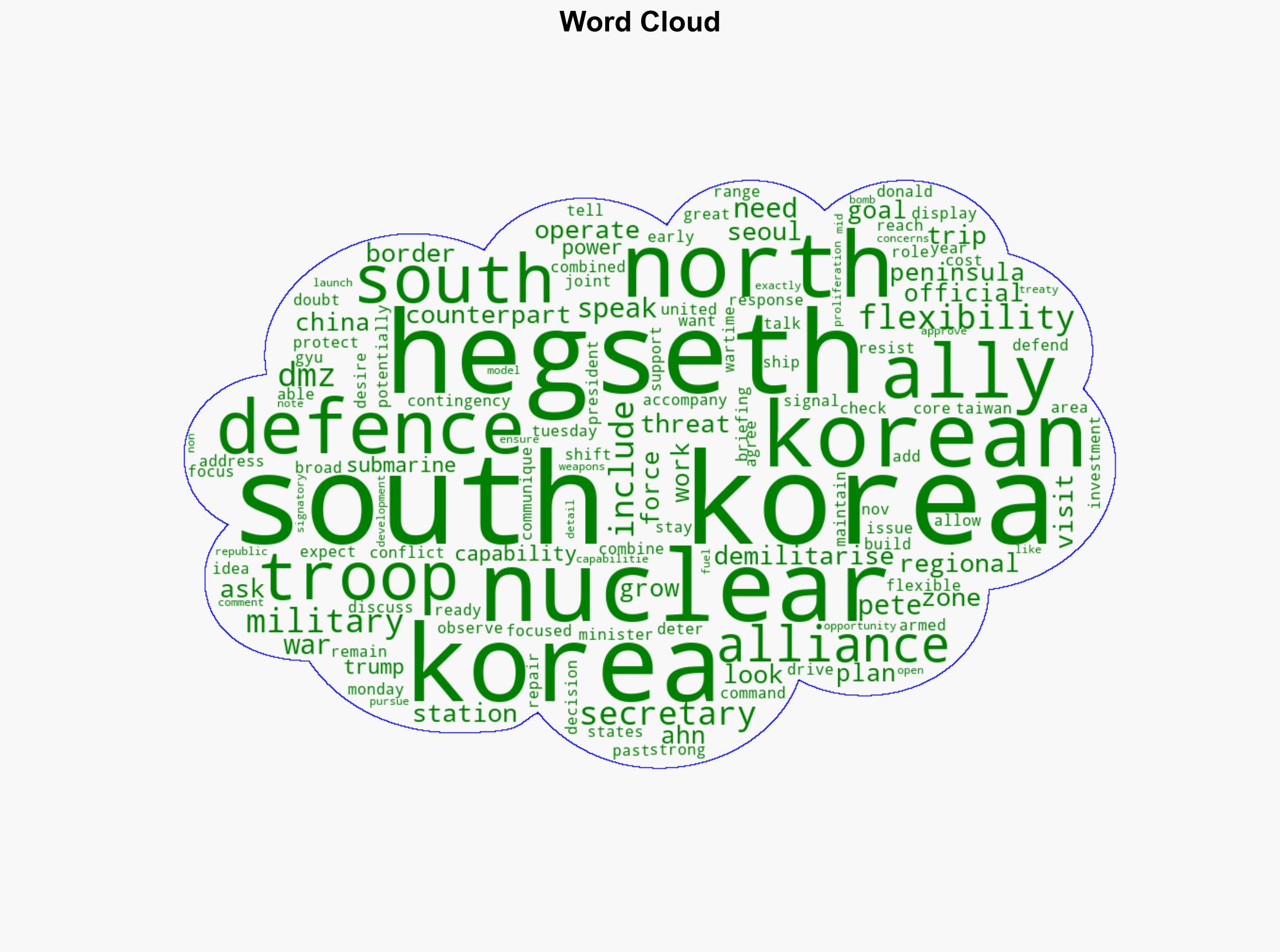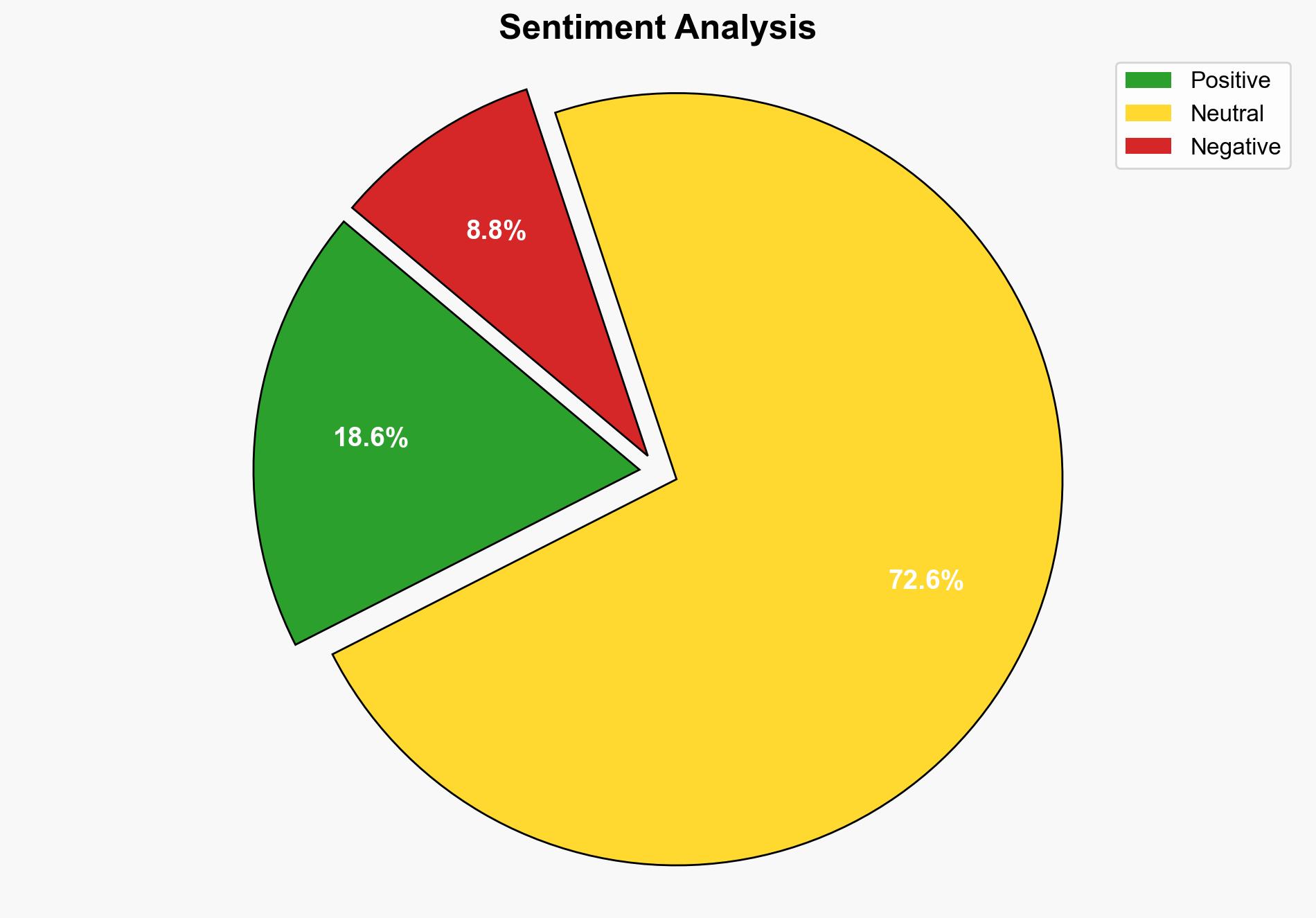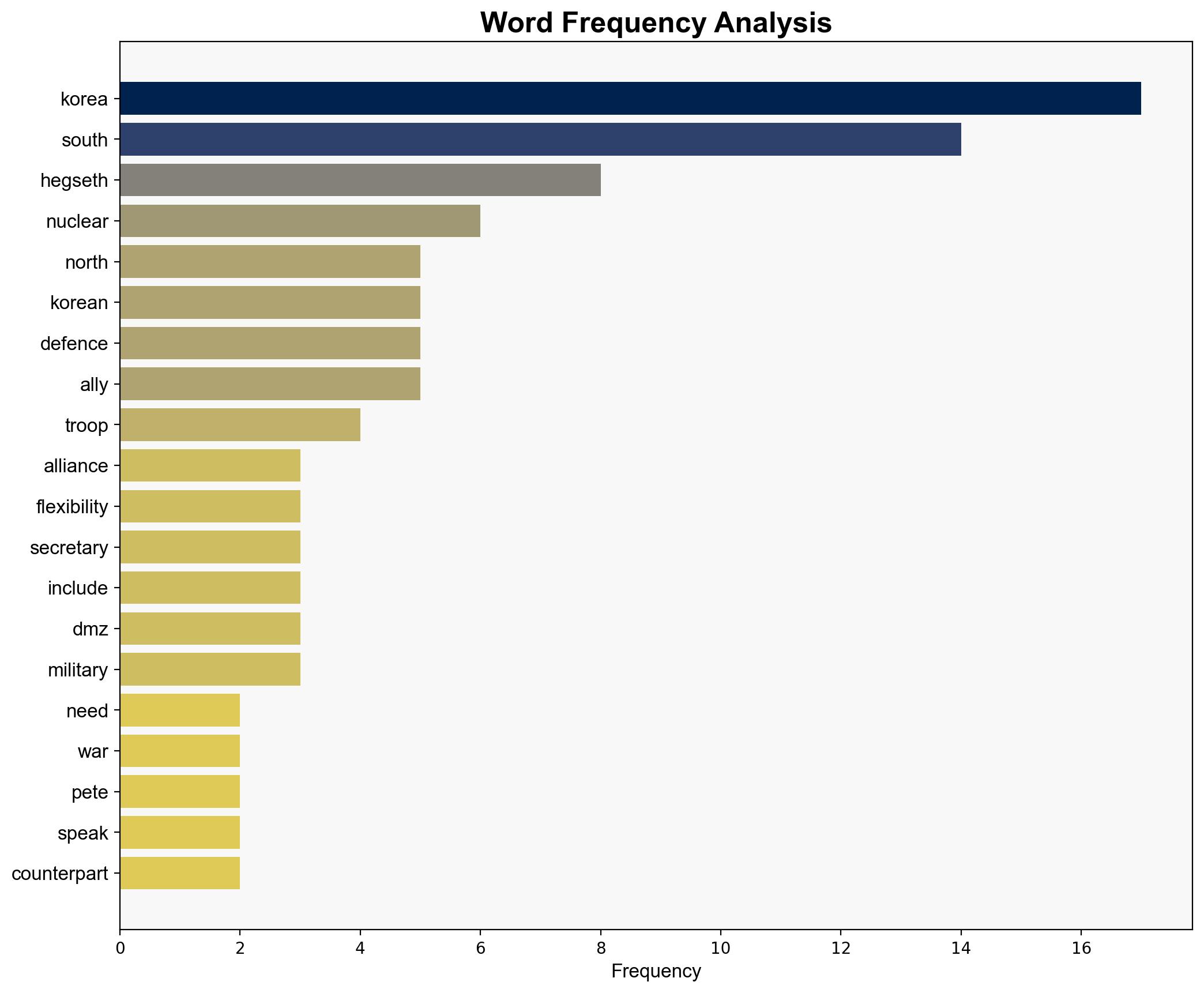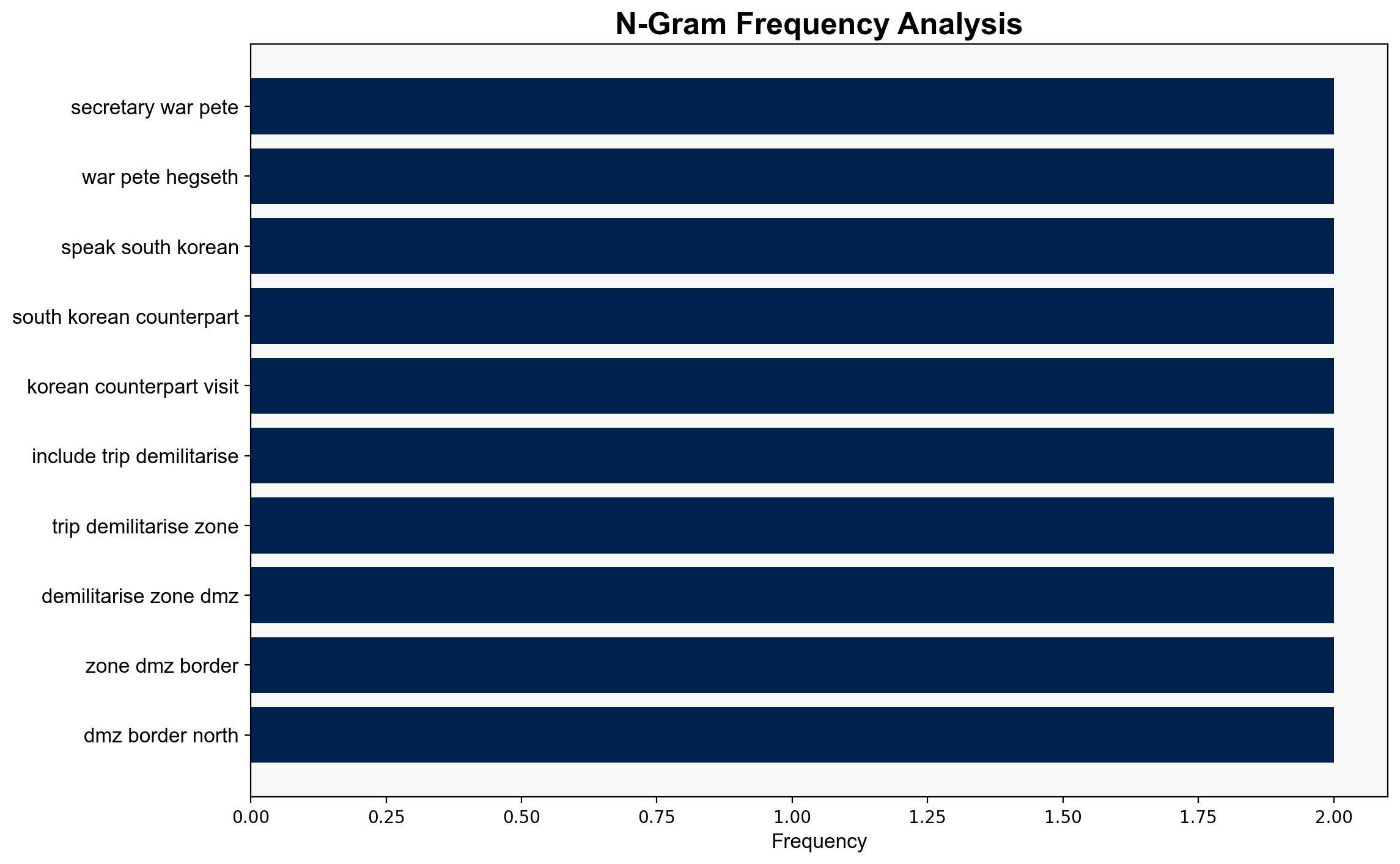Hegseth says US-South Korea alliance focused on North Korea but ‘flexibility’ needed – CNA
Published on: 2025-11-04
Intelligence Report: Hegseth says US-South Korea alliance focused on North Korea but ‘flexibility’ needed – CNA
1. BLUF (Bottom Line Up Front)
The strategic judgment indicates a moderate confidence level that the US-South Korea alliance is seeking to expand its operational flexibility beyond North Korea to address broader regional threats, including China’s growing influence. The most supported hypothesis suggests a shift towards a more versatile military posture in the region. Recommended action includes enhancing joint military exercises and diplomatic engagements to ensure preparedness for a range of contingencies.
2. Competing Hypotheses
Hypothesis 1: The US-South Korea alliance is primarily focused on deterring North Korea, with flexibility as a secondary consideration to address regional threats.
Hypothesis 2: The alliance is actively shifting towards a more flexible military posture to counterbalance China’s regional influence, with North Korea remaining a significant but not exclusive focus.
Using ACH 2.0, Hypothesis 2 is better supported by the emphasis on flexibility and regional contingencies mentioned in the intelligence, as well as the strategic importance of countering China’s military reach.
3. Key Assumptions and Red Flags
Assumptions include the belief that South Korea will align with US strategic interests in expanding military flexibility. A potential red flag is the lack of explicit South Korean commitment to this shift, as well as domestic political factors that may influence South Korea’s military policy. There is also an assumption that China will perceive this shift as a direct threat, which could escalate tensions.
4. Implications and Strategic Risks
The implications of a more flexible US-South Korea alliance include potential escalation with China and increased regional instability. There is a risk of misinterpretation by North Korea, leading to heightened military readiness or provocations. Economically, increased defense spending could strain South Korea’s budget, while cyber threats may rise as regional tensions escalate.
5. Recommendations and Outlook
- Enhance joint military exercises focusing on multi-domain operations to improve readiness for diverse threats.
- Engage in diplomatic dialogues with China to mitigate potential misinterpretations and reduce escalation risks.
- Scenario Projections:
- Best Case: Improved regional stability through balanced deterrence and diplomatic engagement.
- Worst Case: Escalation of military tensions with China and North Korea, leading to regional conflict.
- Most Likely: Gradual enhancement of military flexibility with periodic diplomatic tensions.
6. Key Individuals and Entities
Pete Hegseth, Ahn Gyu, Donald Trump
7. Thematic Tags
national security threats, regional focus, military strategy, US-South Korea alliance





